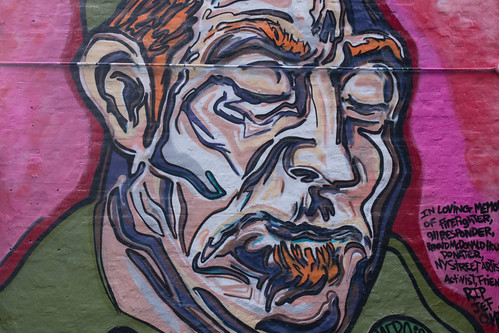Over the past year or so, I’ve written a bit about the Los Angeles, CA-based act Here Lies Man, and as you may recall, the act, which was founded by Marcos Garcia and Geoff Mann, both of whom have been members of renowned Afrobeat act Antibalas have received attention here and elsewhere for a sound that manages to seamlessly bridge classic, Fela Kuti-era, funky Afrobeat grooves with classic, Black Sabbath and Led Zeppelin-era, power chord-fueled rock.
The band’s highly-anticipated sophomore effort You Will Know Nothing is slated for a June 15, 2018 release through RidingEasy Records, and the album finds the band busily refining and expanding upon their sound; in fact, as the band’s co-founder Marcos Garcia explains in press notes, “We’re very conscious of how the rhythms service the riffs. Tony Iommi’s (Black Sabbath) innovation was to make the riff the organizing principle of a song. We are talking the same approach but employing a different organizing principle: For Iommi, it was the blues, for us to comes directly from Africa.” Along with that, the members of the band specifically focused on writing catchier, much more anthemic material with a slightly slicker, crisper production, while lyrically, they wanted to focus on a conceptualized effort, as the songs thematically are centered around states of being and consciousness. As Garcia continues “We wanted to go deeper with the sonic experience. Even though it sounds more hi-fi than the first record, it was important that it didn’t sound too polished.”
Interestingly, the album’s material is also based around some musical theory and mathematics with interludes between each song that are 2/3rds to 3/4th of the tempo of the previous song. “The reason it breaks down to 2 over 3 or 3 over 4 is that everything in the music rhythmically corresponds to a set of mathematical algorithms known as the clave. The clave is an ancient organizing rhythmic principle developed in Africa.” As the band’s Geoff Mann says “We dove deep into the texture of the music, beyond the groove and the riff. Although something might sound like one instrument, there are subtle layers shifting through. It’s definitely a headphone album.”
However, much like the previous album, the duo of Garcia and Mann recorded You Will Know Nothing a their Los Angeles studio on a Tascam 388 8-track recorder. Congas later recorded by percussionists Richard Panta and Reinaldo DeJesus. Then Garcia traveled to New York to record the interludes with former Antibalas keyboardist Victor Axelrod. Mixing took the most time of the entire process, as they had to found the proper sonic space of each layer of musical detail with their first album engineer Jermey Page mixing the drum parts and the band tackling the remainder while balancing a busy touring schedule.
Much like its hallucinogenic but anthemic predecessor “Fighting,” You Will Know Nothing’s latest single “That Much Closer to Nothing” is centered around a blistering power-chord rock and shuffling yet propulsive rhythms — and while managing to mesh psych rock, stoner rock, Afrobeat and classic rock, the album’s new single is incredibly textured and requires multiple, careful listens. Interestingly, the track also reveals a band that has written some of the most ambitious yet accessible material they’ve written to date.

